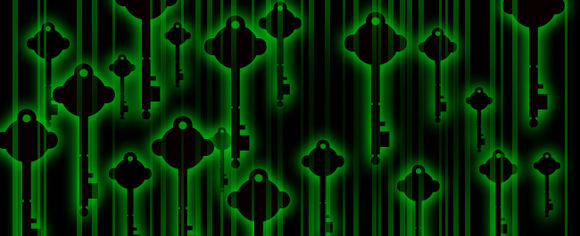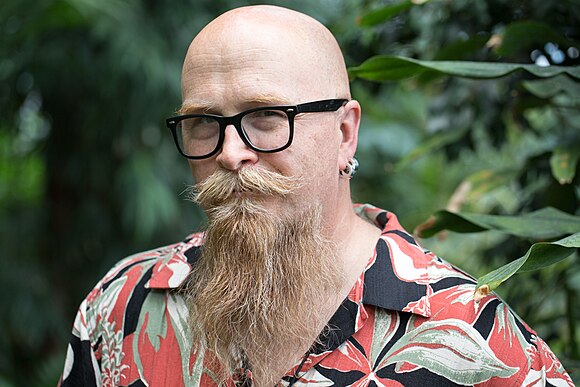विकिमिडिया मुख्य सार, जुन २०१५

"Geoffrey Bilder.jpg" by Helpameout, freely licensed under CC BY-SA 4.0.; "Wreck of the U.S.M. steam ship "Arctic" (one-third-size).png" by James E. Buttersworth, Public domain.; "Green_Keys.jpg" by Hugh D’Andrade, from Electronic Frontier Foundation, freely licensed under CC BY 3.0.; "The Alamo at Night, San Antonio, Texas (2014-12-12 23.00.05 by Nan Palmero).jpg" by Nan Palmero, freely licensed under CC-by-SA 2.0; "Print Wikipedia by Michael Mandiberg, NYC June 18, 2015-34.jpg" by Victor Grigas, freely licensed under CC BY-SA 3.0 Collage by Andrew Sherman
यहाँ जुन २०१५ को लागि विकिमिडिया ब्लगबाट मुख्यसारहरू छन् ।

प्रायः सबै संरक्षकहरू मेक्सिकन सेनाद्वारा मारिए पछि अलमो टेक्सासको प्रतिरूप भयो । Photo by Nan Palmero, freely licensed under CC-by-SA 2.0.
मेक्सिको र संयुक्त राज्य अमेरिकाका विद्यार्थीहरू कहिलेकाहीँ टेक्सास क्रान्ति १८३५/३६ को इतिहास पढ्छन् । दुई विकिपिडिया सम्पदाकहरू Karanacs र Maile66 ले, यस इतिहासको बारेमा विकिपिडिया सुधार गर्ने जिम्मा आफ्नो काँधमा लिए ।
Over a three-month span, Karanacs and Maile66 worked together to develop the new article. Their plan of attack included scrapping the existing piece, all 5,243 words of it, and doing heavy in-depth research. Karanacs estimated that she spent over 300 hours reading academic literature, writing the article, and negotiating Wikipedia's peer-review process.

To ensure that Wikipedia users can share in the world’s knowledge more securely, the Wikimedia Foundation is implementing HTTPS, to encrypt all traffic on Wikimedia sites. Image by Hugh D’Andrade, from Electronic Frontier Foundation, freely licensed under CC BY 3.0.
To be truly free, access to knowledge must be secure and uncensored. The Wikimedia Foundation believes that you should be able to use Wikipedia and the Wikimedia sites without sacrificing privacy or safety. In June, it implemented HTTPS to encrypt all Wikimedia traffic.
The HTTPS protocol creates an encrypted connection between your computer and Wikimedia sites to ensure the security and integrity of data you transmit. Encryption makes it more difficult for governments and other third parties to monitor your traffic. It also makes it harder for Internet Service Providers (ISPs) to censor access to specific Wikipedia articles and other information.
An interview with Michael Mandiberg, the artist behind Print Wikipedia. You can also view the above video on YouTube and Vimeo
Video by Victor Grigas, freely licensed under CC BY-SA 3.0.
After six years of work, a lot of debugging, and more than a little help from his friends, Michael Mandiberg has created Print Wikipedia. It's a new artwork in which custom software transforms the entirety of the English-language Wikipedia into 7,473 volumes, and uploads them for print-on-demand.
It is important to note that Mandiberg has not printed out all of the books for the art exhibit, nor does he plan to. He has currently printed only a small percentage of them, which are helpful for visualizing the size of Wikipedia. It isn't necessary to print them all out; our imaginations can complete what is missing.

One of User:Wehwalt's five picks: The SS Arctic was an early Titanic-like disaster. Painting by James E. Buttersworth, Public domain.
'Wikipedia Picks' is a new content experiment for the Wikimedia blog. This weekly feature invites one member of the Wikipedia community to curate a list of five articles, images, or other content that they find interesting or important, in collaboration with our blog editors.
This article's guest host was Gary Greenbaum (Wehwalt), who has written 127 featured articles on the English Wikipedia, in whole or as part of a team—more than anyone else on the site. Over the past ten years, he has made nearly 100,000 edits. He selected five featured articles, three of which he personally worked on.
Caitlyn Jenner, a famed US Olympic athlete and reality television star, completed her transition on June 1 and revealed it with a cover shoot in Vanity Fair. Wikipedia responded to this news in less than 30 minutes..
The news of Caitlyn Jenner's feature article in Vanity Fair quickly went viral around the Internet. But it brought conflict on how to address her. The conservative US magazine National Review asked “who won Bruce Jenner’s Olympic medals?”, and questioned how individuals should write about a new gender identity set against Jenner’s extensive history in a gendered sport.
English Wikipedia editors, however, had little conflict, in large part because of guidelines written during Chelsea Manning's transition in 2013. After thousands of bytes of text, a subsection of Wikipedia’s Manual of Style called “Identity” was edited to read, as of 1 June 2015:
An exception … is made for terms relating to gender identity. In such cases, Wikipedia favors self-designation, even when usage by reliable sources indicates otherwise. Any person whose gender might be questioned should be referred to by the pronouns, possessive adjectives, and gendered nouns (for example “man/woman”, “waiter/waitress”, “chairman/chairwoman”) that reflect that person’s latest expressed gender self-identification. This applies in references to any phase of that person’s life, unless the subject has indicated a preference otherwise.

Geoffrey Bilder is working to prevent the death of hyperlinks, also known as "link rot". Photo by Helpameout, freely licensed under CC BY-SA 4.0.
While hyperlinks have made the experience of reading printed text easier, they do have one major disadvantage: "link rot"—the demise of hyperlinks that no longer point to their original resource.
Geoffrey Bilder has spent 15 years in the scholarly communication industry and has used Wikipedia since the early 2000s. “What we are starting to realize is that a lot of the citation tools in Wikipedia have not been updated for a long time,” he says. “Since then we’ve been working on trying to get real-time feed of DOI citations from the all the different language Wikipedias.”
Andrew Sherman, डिजिटल संचार इन्टर्न, विकिमिडिया फाउन्डेसन
